Erdogan and the polarization of the Turkish opposition
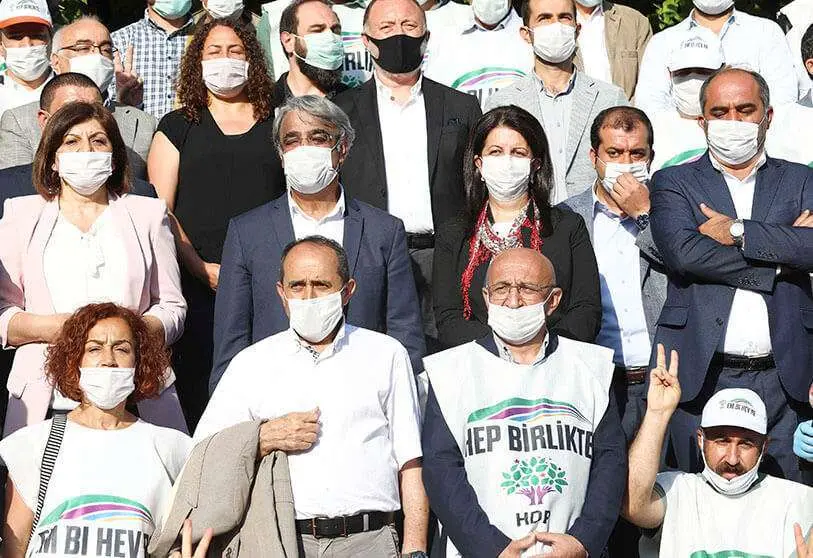
The social crisis caused in Turkey by a legal reform that could undermine the independence of the country's lawyers is a reflection of the political and social polarisation that exists in the country founded by Mustafa Kemal Atatürk. In recent years, Erdogan has been able to assume full power in a Turkey that, for several years, has been very divided on the ballot box. However, power does not last forever. In 2019, the president of the Eurasian nation suffered a major setback when he lost the elections in some of the big cities such as Ankara or Istanbul.
A year ago, the centrist opposition candidate, Ekrem Imamoglu (CHP), won the mayoral elections in Istanbul, just a month and a half after the Electoral Commission ordered a repeat of the municipal elections in the country's economic capital, where the opposition had won over President Recep Tayyip Erdogan's party. Beyond the two largest cities in Turkey, the opposition coalition achieved a large representation in large areas of the Mediterranean coast as in Antalya or Mersin. Thus, the social democratic opposition arrived in Istanbul putting an end to 25 years of government by Islamist parties, initiated by the current president.
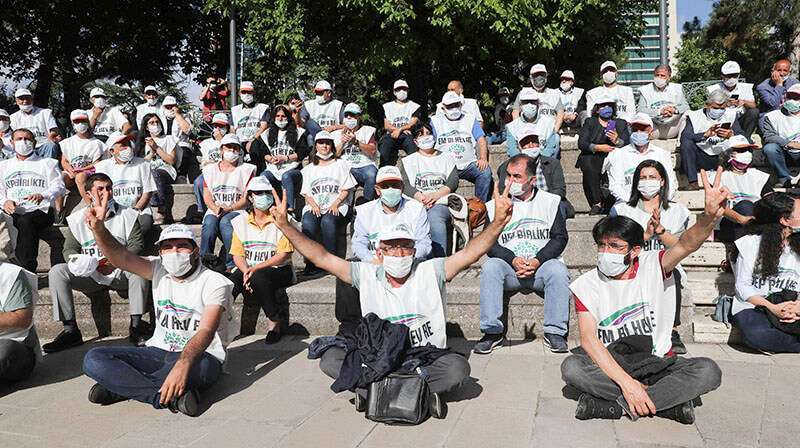
This victory was possible because, for the first time, the nationalist, liberal and various minority parties managed to work together effectively. However, the coronavirus pandemic and the resulting economic crisis has opened up new cracks in the Turkish opposition, while government repression of the People's Democratic Party (HDP) continues to increase. The HDP, a pro-Kurdish party founded on 15 October 2012, brings together various progressive organisations and left-wing parties. This weekend, the March for Justice and Democracy, partly led by the HDP, turned into a violent demonstration outside a parliament building in Ankara.
"I participated in the march in some cities. The level of violence during the demonstration was worse than ever: soldiers, police, helicopters, guns everywhere. We tried to walk in peace, but the state won't even allow it," HDP MP Garo Paylan told Diyarbakır, a Kurdish majority town in south-east Turkey, to the British daily The Guardian. According to the newspaper, at least 45 mayors from the 65 municipalities where the HDP won a year ago have been removed or arrested for alleged terrorist links. In this scenario Turkish society believes that the People's Republican Party (CHP) should help the HDP.

The 2015 elections marked the end of an era, as thirteen years after coming to power in 2002, the Islamist Justice and Development Party (AKP) lost its absolute majority in the country's parliamentary elections. The HDP was responsible for this drain of seats from the AKP when it crossed the 10 % electoral threshold and managed to enter Parliament for the first time as a party with a single list, instead of with independent candidates as had been the case in the past. In response, the Turkish leader cancelled the peace process initiated in 2013 with the Kurds, claiming that it was not possible to "maintain the peace process with those who threaten national unity and brotherhood" and initiated a purge against the politicians and supporters of this party because of their alleged links to this group.
However, Erdogan has concluded that keeping the HDP on the political spectrum can help him capitalize on the differences between the various opposition parties, thwarting attempts to create a united front, according to The Guardian. "We are at a critical turning point in Turkey. The entire opposition must come together on common ground to form a democratic alliance against the one-man government. We must not fall into the divisive and isolating paths set by the ruling party," said Filiz Kerestecioğlu, the HDP representative in Istanbul.
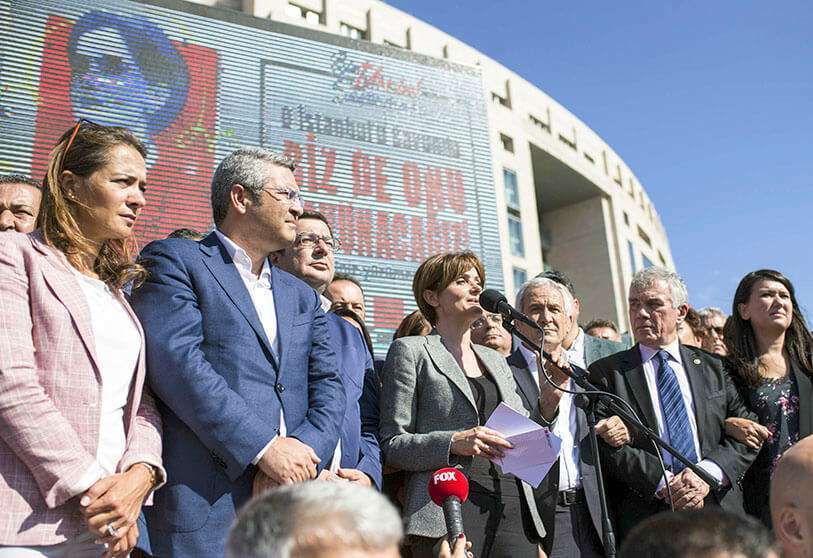
Meanwhile, the popularity of the People's Democratic Party continues to rise thanks to the management of the COVID-19 crisis by Ankara Mayor Mansur Yavaş and Istanbul Mayor Ekrem İmamoğlu. Analyst Selim Koru - interviewed by the Guardian newspaper - said that the youth sections of the party "are more class conscious and less in love with nationalism than their ancestors".
At the beginning of June, at least 79 associations and bar associations in Turkey issued a joint declaration, asking the executive to revoke a draft law that could endanger the effectiveness and independence of these institutions. The leader of Turkey's main opposition party (CHP), Kemal Kilicdaroglu, opposed this legal reform on Tuesday, stressing that the bar associations were legally considered as public entities according to the country's constitution. "A country does not have two central banks. There would not be two governors in a single province. There would not be two governors in a single municipality. There would not be two finance ministers," he said.
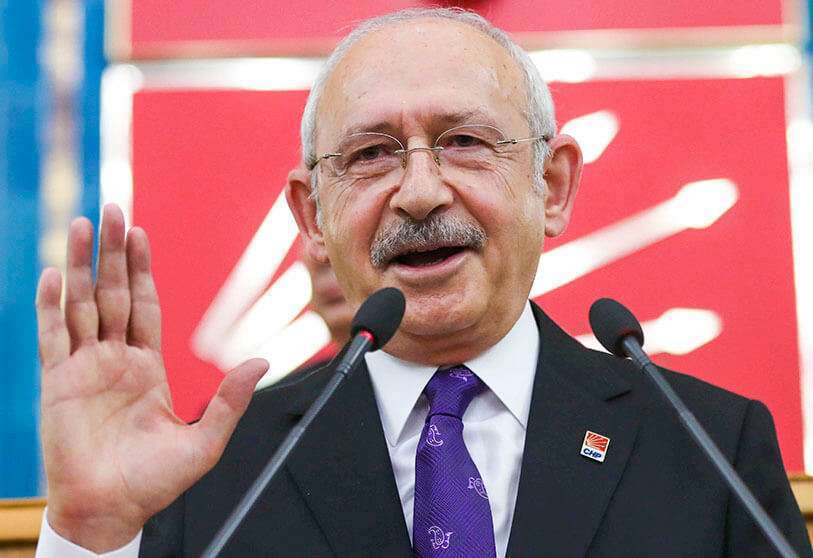
During his speech he also accused the government of trying to usurp the right to legal defence by changing the legal code that governs the bar associations. "Those who did not want lawyers to enter Ankara should not forget that one day they will also need lawyers," he said as he showed his support for the lawyers who were blocked by the police on Monday when they tried to enter Ankara.
The March for Justice and Democracy, organized by the HDP, has been held in protest of the imprisonment of thousands of supporters and activists belonging to this political organization. The marches began more than a week ago from the north-western province of Edirne and the south-eastern stronghold of HDP in Hakkari province, after the Turkish parliament revoked the seats of three opposition MPs, two from HDP and one from the main Republican People's Party (CHP). Leyla Güven of the HDP and Enis Berberoğlu of the CHP have been released while awaiting trial, while HDP deputy Musa Farisoğulları remains in prison, according to digital Ahval News.
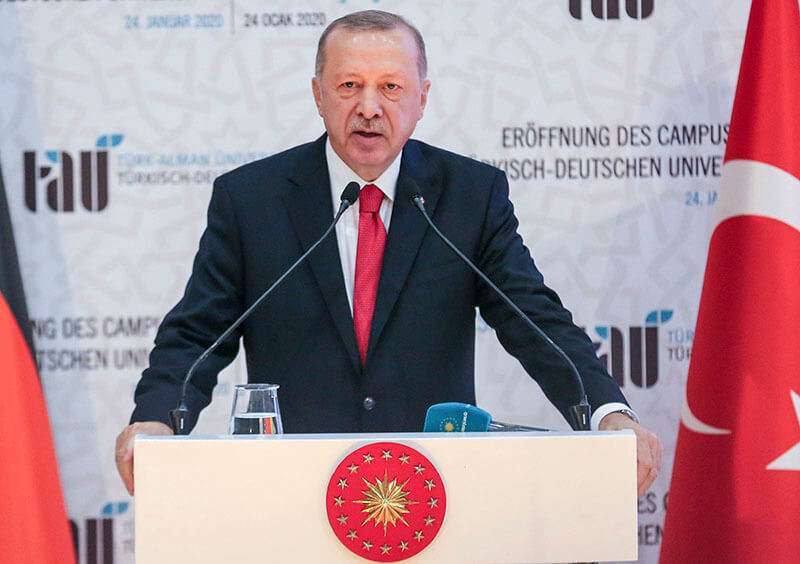
This demonstration has highlighted the various political differences that exist in the country's opposition. Before this protest began, CHP leader Kemal Kılıçdaroğlu said the HDP demonstration was " inopportune", and that the measures taken by Erdogan's Executive were " a strategy of the Government to push the opposition into street protests". "Conditions today are very different. I consider a march in these circumstances to be wrong. The CHP must be different from other opposition parties. We must refrain from any act that creates tension and is open to provocation," he said more than a week ago.








